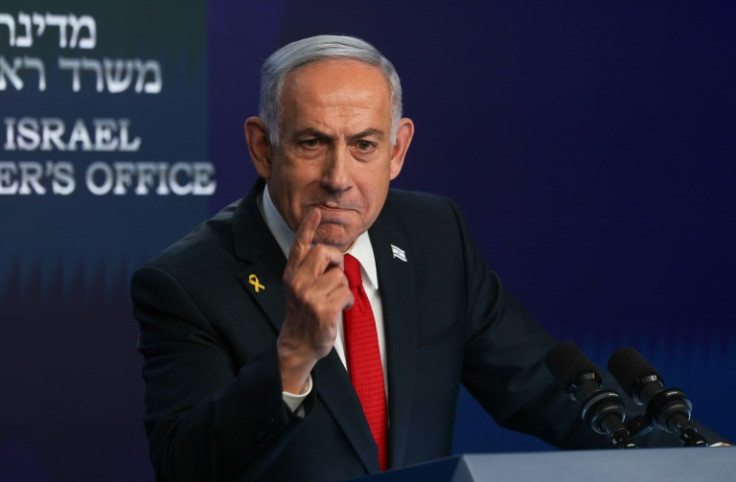Trump On Iran: 'It's Not Complicated' As Israel Prepares For Possible Action

President Donald Trump on Thursday raised the prospect of an Israeli military strike on Iran's nuclear facilities, warning that such an operation "could very well happen" soon. His remarks, made during a White House appearance, come amid growing international concern over Iran's nuclear ambitions and reports that Israel is preparing for possible military action, The Independent reported.
Asked whether an Israeli attack was likely, Trump said, "I don't want to say it's inevitable, but it looks like something that could very easily happen," reflecting mounting pressure over Tehran's nuclear program. In the wake of his comments, the U.S. began drawing down embassy staff in Iraq and ordered the evacuation of military families from select Middle Eastern regions, citing rising security threats, according to the Financial Times.
Trump reiterated his firm opposition to a nuclear-armed Iran, telling CNN (Arabic): "It's very simple, it's not complicated. Iran cannot have nuclear weapons." While emphasizing that he wanted Iran to succeed economically—suggesting that trade and diplomatic engagement were possible—he insisted the country must abandon any nuclear weapons aspirations.
Meanwhile, U.S.-Iran nuclear negotiations are set to resume with a sixth round of talks in Oman. U.S. envoy Steve Witkoff and Iranian Foreign Minister Abbas Araghchi are expected to lead the discussions. Ahead of those talks, American and Israeli officials are meeting to align their positions, the Financial Times reported.
Despite ongoing diplomacy, Israel has reportedly made final preparations for a potential strike. Israeli Channel 12 noted that the Air Force has designated aircraft on standby for operations against Iranian nuclear facilities, according to Die Zeit. Still, sources cited by Makor Rishon indicated that Prime Minister Benjamin Netanyahu's government had not yet made a final decision to proceed with an attack.
Iran responded with threats of regional retaliation. Defense Minister Aziz Nasirzadeh warned that any Israeli or U.S. military action would prompt counterstrikes on American bases and could disrupt maritime traffic through the Strait of Hormuz—one of the world's most vital oil transit routes—Makor Rishon reported.
At the same time, Tehran announced it would escalate its nuclear activities, including expanded uranium enrichment at multiple facilities, according to CNN (Arabic). The Financial Times noted that the International Atomic Energy Agency (IAEA) had concluded Iran violated its Nuclear Non-Proliferation Treaty (NPT) commitments—its first breach of the treaty in nearly 20 years—prompting outrage in the West.
Despite rising tensions, Trump said he still hoped for a peaceful resolution and urged Iran to make further concessions to secure a deal. However, speculation continues to grow that Israel could act unilaterally, without coordination with Washington, Makor Rishon reported.
The unfolding situation has prompted U.S. embassies across the Middle East to review emergency security measures, as the region braces for a possible turning point in the long-running nuclear standoff.
© Copyright IBTimes 2025. All rights reserved.





















